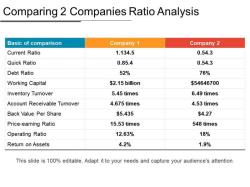What is gross up on relocation?
"Gross-up on relocation" refers to a financial practice used by employers to provide employees with a relocation or moving package that covers the additional tax liability incurred due to reimbursements and benefits associated with moving for work. It is a method used to ensure that employees do not experience a decrease in their net income as a result of relocation-related expenses.
Here's how gross-up on relocation works:
Tax Implications: When an employer provides financial assistance or reimbursements to an employee for relocation expenses, these payments are often considered taxable income by tax authorities. This means that the employee may be required to pay income taxes on the relocation benefits they receive.
Covering Tax Liabilities: To prevent employees from bearing the burden of additional taxes on these relocation benefits, employers may offer a "gross-up" or additional payment to cover the estimated tax liability associated with the relocation assistance. Essentially, the employer increases the amount of financial assistance to offset the employee's tax liability, so the employee receives a net amount that covers their expenses.
Calculating Gross-Up: The process of calculating the gross-up involves determining the estimated tax liability on the relocation benefits. This calculation takes into account the employee's tax bracket, federal and state income tax rates, and other applicable taxes. Once the estimated tax amount is determined, the employer adds this amount to the relocation assistance package, ensuring that the employee receives enough to cover the taxes and the intended expenses.
Tax Reporting: Even with gross-up, employees are still required to report their relocation benefits as taxable income when filing their tax returns. However, they will have the additional funds provided by the employer to cover the tax liability.
Gross-up on relocation is commonly used when companies want to attract and retain talent by offering comprehensive relocation packages. It helps make the transition for employees smoother and less financially burdensome. However, calculating the gross-up accurately can be complex, as tax laws vary by location, and individual circumstances can differ widely. Employers often work with tax professionals or use specialized software to calculate gross-up amounts.
It's essential for both employers and employees to understand the tax implications and the terms of the relocation package to ensure that all financial aspects are addressed transparently and accurately. Additionally, tax laws and regulations may change over time, so employers should stay updated to remain compliant with tax authorities.













